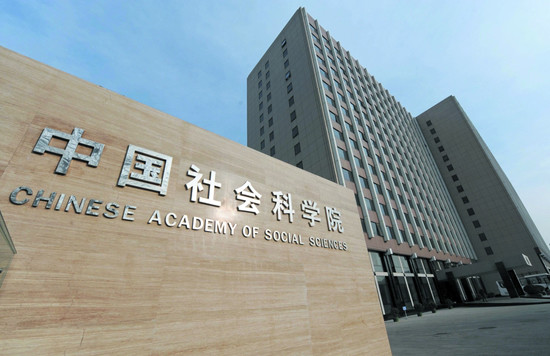
Will Default Dampen China-Argentina Ties?
The Fernández administration’s refusal to comply with a US court order to pay holdout hedge funds has once again landed Argentina in default.
In 2014, the Chinese government released its plans for the construction of a Social Credit System, which will be fully implemented by the end of 2020, according to the Chinese government. Though often associated with Beijing’s efforts to tighten its grip on individual freedoms through facial recognition and other technologies, this system is better understood as a sort of credit scoring mechanism, employing modern technology and a complex ratings system to monitor and guide the conduct of market participants, including companies and individuals. Full implementation of the system is expected to have extensive effects not only on Chinese businesses and people, but on the many foreign companies operating in China or hoping to access to the Chinese market. This includes a growing number of Latin American companies, such as Alfa Group, Bimbo, Cemex, Embraco, Embraer, and Vale, among others.
Defining Social Credit
Although plans for the Social Credit System were released in 2014, the concept of social credit has been referenced by Chinese scholars and officials since the late 1990s, according to consultancy Trivium China, when a Chinese Academy of Social Sciences report captured the attention of China’s leadership. More recently, a think tank associated with China’s National Development and Reform Commission published a book entitled “Credit of a Great Nation,” (大国信用), which links the behavior of individuals—and the organizations employing them—to market stability.
China’s efforts to monitor and rate individual behavior have received far more attention from international media and human rights groups than the corporate system, although implementation of the latter is far more advanced. The monitoring of individuals is still relatively experimental and remains largely decentralized. Certain municipal and provincial governments have developed their own criteria for evaluation, which vary rather considerably on a case-by-case basis. Chinese individuals are nonetheless feeling the effects of localized evaluation systems. Nearly 23 million “discredited” people were restricted from buying plane and train tickets in 2018, for example, according to a report from the Credit Reference Center, which is charged with running the Social Credit System. Depending on the locality, individual credit is affected by everything from evading military service to being in arrears on payment of goods.
Monitoring Businesses
The part of the system that assesses the performance and behavior of companies—both foreign and domestic—is comprised of several topic-specific ratings (e.g. tax, customs, and environmental protections) and compliance records on anti-monopoly activity, pricing, and licenses, for instance. While the ratings have introduced some new requirements, including company accountability for the behavior of business partners, such as suppliers and service providers, according to a EU Chamber of Commerce in China and Sinolytics report, most are based on regulations that have been in place for a matter of years. According to the same report, the system ensures that the ratings of individual employees—especially those at the managerial level or serving as legal representatives to a company—can impact a company’s rating. A company’s malfeasance can also affect the personal scores of its employees.
An especially challenging feature of the system for domestic and foreign companies is its use of joint sanctions. This feature, though not yet fully operational, requires that government authorities levy sanctions based not only on the ratings they are directly responsible for, but also in response to negative ratings issued by other government bodies and private credit rating agencies. The coordination of sanctions is based on Memoranda of Understanding (MoUs) among government authorities.
Although sanctioning mechanisms are still being developed, China’s eventual capacity for joint sanctions will have extensive implications for businesses operating in the country. For example, if a company fails to comply with tax requirements to the point of being listed as a heavily-tax-regulation-violating entity (a D-level tax rating) by the State Administration of Taxation, the company could also be treated as a distrusted customs enterprise by the General Administration of Customs. Said company could also face sanctions from other government bodies, including those responsible for business licensing or other critical approvals. The average inspection import-export rate for a “distrusted customs enterprise” (海关失信企业) can be as high as 98.12 percent, significantly impacting a company’s day to day operations.
To enable the application of joint sanctions, data is fed into a central system that informs government entities on the creditworthiness of a corporation or an individual. This central database, known as the National Credit Information Sharing Platform, has been operational since 2015 and is run by the National Development and Reform Commission (NDRC) and its think tank, the State Information Center. Last month alone, the NDRC rated 33 million Chinese businesses, despite some challenges collecting third-party data. Earlier this year, Chinese tech firms Tencent and Alibaba, refused to turn over customer loans data to Baihang, a government-backed credit scoring company that aims to consolidate national credit scoring data.
Implications for Latin American Companies
Once fully applied, China’s Social Credit System will have far-reaching consequences for both domestic and foreign firms. Given their already numerous barriers to entry in the Chinese market, the challenges for Latin American businesses will be especially pronounced. Although China’s new foreign investment law, which will take effect on January 1, would appear to improve the investment environment for foreign companies, full application of the Social Credit System will make it exceedingly difficult and costly for business to comply with Chinese regulations. The new regulatory landscape could be especially prohibitive for Latin American and other small and medium-sized enterprises (SMEs), which in many cases will not have the resources necessary to keep up with new policy and related requirements.
Looking ahead to 2020, support from Latin American governments, industry organizations, and chambers of commerce will be increasingly critical as businesses aim to navigate China’s regulatory environment. The Social Credit System’s effectiveness will intensify as Chinese entities collect more data on companies and individuals and as communication among China’s various regulatory bodies improves.
The Fernández administration’s refusal to comply with a US court order to pay holdout hedge funds has once again landed Argentina in default.
Who in China is advising on energy engagement with Latin America?
Will protesters succeed in halting the canal’s construction?

